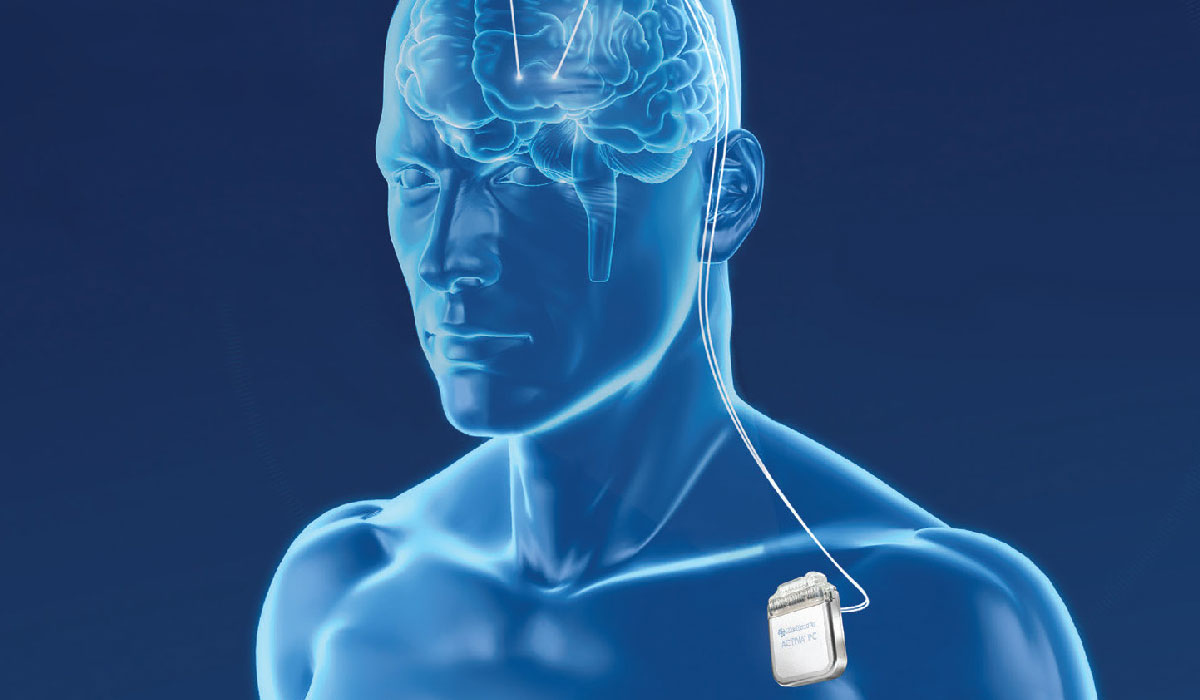Deep Brain Stimulation: A Neurosurgical Breakthrough
Deep brain stimulation (DBS) is a surgical treatment option for certain movement disorders, such as Parkinson’s disease, essential tremor, and dystonia. It involves implanting a neurostimulator device, similar to a pacemaker, in the brain. This device sends electrical impulses to specific areas of the brain, helping to regulate abnormal brain activity and alleviate symptoms.
Understanding Deep Brain Stimulation
Deep brain stimulation (DBS) is a highly specialized procedure that requires a skilled neurosurgeon. The procedure involves implanting a neurostimulator device, consisting of a battery-powered pulse generator and thin wires called leads. The neurostimulator is typically implanted in the chest, while the leads are surgically placed in specific areas of the brain.
How Does Deep Brain Stimulation Work?
The neurostimulator sends electrical impulses to the targeted brain areas, which can help regulate abnormal brain activity. The exact mechanism of action is not fully understood, but it is believed to modulate the activity of certain neurons and improve communication between different brain regions.
Conditions Treated with Deep Brain Stimulation
Deep brain stimulation (DBS) is primarily used to treat the following conditions:
- Parkinson’s Disease A progressive neurological disorder that affects movement, including tremors, stiffness, and difficulty walking.
- Essential Tremor A neurological disorder that causes involuntary trembling.
- Dystonia A movement disorder characterized by involuntary muscle contractions.
The Role of Neurosurgeons
Neurosurgeons play a critical role in the evaluation, planning, and performance of deep brain stimulation surgery. They have specialized training and expertise in brain surgery and are skilled in identifying the precise target areas for stimulation.
- Preoperative Evaluation Before surgery, neurosurgeons conduct a thorough evaluation of the patient, including a medical history, neurological examination, and imaging studies (such as MRI and CT scans) to determine if they are a suitable candidate for DBS.
- Surgical Procedure The surgery is typically performed under general anesthesia. The neurosurgeon implants the neurostimulator device and leads using stereotactic techniques, which involve precise targeting of the brain.
- Post-Operative Care After surgery, patients are monitored closely to ensure a smooth recovery. Physical therapy and medication adjustments may be necessary to optimize the benefits of DBS.
Benefits of Deep Brain Stimulation
Deep brain stimulation (DBS) can significantly improve the quality of life for individuals with movement disorders. Some of the potential benefits of DBS include:
- Reduced Symptoms DBS can help reduce tremors, stiffness, and involuntary movements.
- Improved Quality of Life DBS can improve daily activities, such as eating, dressing, and walking.
- Reduced Medication Dependence DBS can reduce the need for medications, which can have side effects.
Risks and Complications of Deep Brain Stimulation
While deep brain stimulation is generally safe, there are potential risks and complications associated with the procedure, including:
- Infection Infection at the surgical site.
- Bleeding Bleeding in the brain.
- Stroke Damage to brain tissue.
- Lead Displacement Movement of the leads from their intended position.
- Battery Failure The battery in the neurostimulator may need to be replaced periodically.
- Side Effects Side effects may include pain, numbness, tingling, or difficulty speaking.
Choosing a Neurosurgeon
Selecting a qualified neurosurgeon is crucial for a successful deep brain stimulation procedure. Consider the following factors when choosing a neurosurgeon:
- Experience and Expertise Look for a neurosurgeon with extensive experience in performing deep brain stimulation surgery.
- Board Certification Ensure the surgeon is board-certified in neurosurgery.
- Hospital Affiliation Choose a surgeon who is affiliated with a reputable hospital with advanced neurosurgical capabilities.
- Patient Reviews Read reviews from other patients to get a sense of the surgeon’s reputation and patient satisfaction.
- Consultation Schedule a consultation with the neurosurgeon to discuss your condition and treatment options.
Conclusion
Deep brain stimulation (DBS) is a promising treatment option for individuals with movement disorders. While it is a complex procedure with potential risks, it can significantly improve the quality of life for many patients. By working closely with a skilled neurosurgeon and following a comprehensive treatment plan, patients can experience the benefits of this innovative therapy.
Contact our clinic’s Neurosurgeon for Deep Brain Stimulation surgery (214) 949-8918 Or Visit us https://specialtycareclinics.com/


